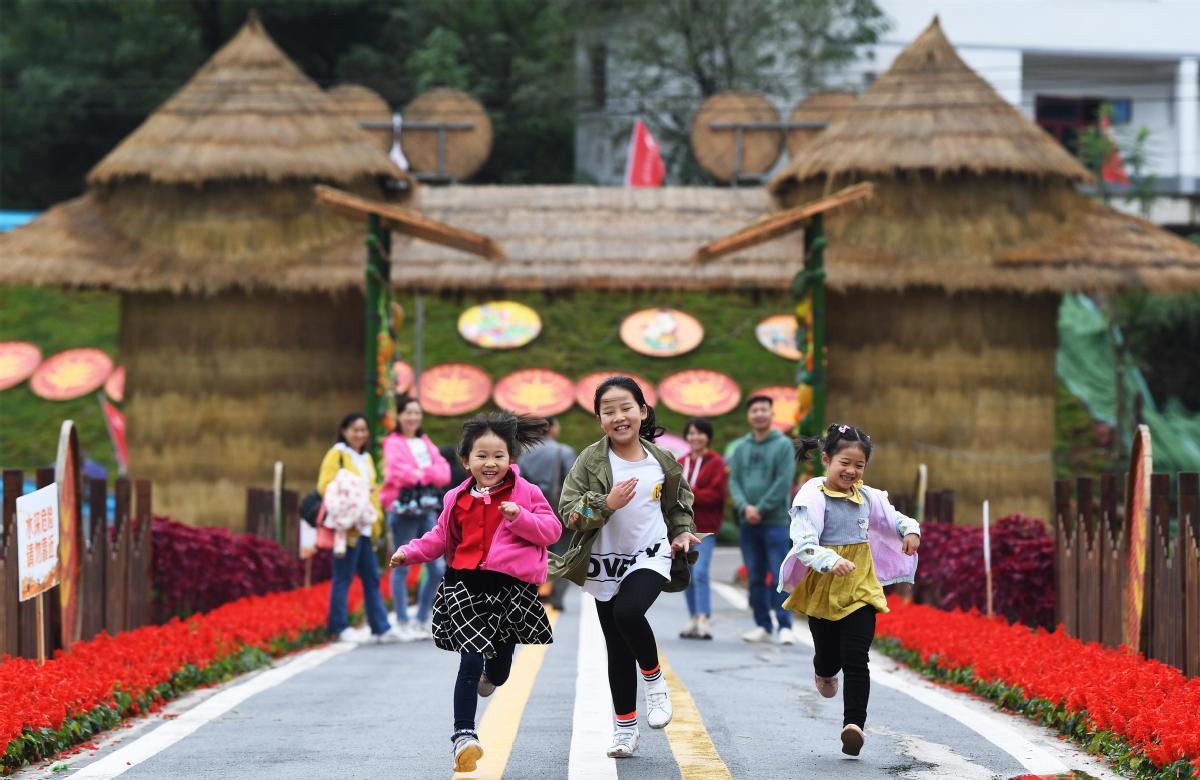Spectacular rise of nation owes much to its culture
By Muhammad Mudassir Tipu | China Daily Global | Updated: 2020-10-13 10:02

"China changes every minute." This was a personal note delivered by an African ambassador when I was posted to Beijing as political counselor in 2012.
The succinct and profound statement kept me thinking about China's miraculous economic development.
How and why was China able to sustain this level of development, which was previously unknown in human history?
We read a lot of economic theories telling us what it really takes for economies to develop. These explain both the macro-and microeconomic principles that remain critical in the economic development of a country or a region.
However, my experience of serving in China tells me something wholly different.
All economic theories have to be implemented in certain cultural, political and social contexts.
While the intellectual community, development practitioners and economists believe that the key to China's economic growth lies in its mixed model of development, to me, the culture of China has played a critical role in its spectacular economic development.
The figures on China's economic prowess are just staggering. China's GDP was $14.3 trillion in 2019 and accounted for 18.72 percent of the world's economy. China also has the world's largest banking sector assets, at around $40 trillion. And it has the world's largest foreign exchange reserves, worth $3.1 trillion.
Very few people today realize that China was one of the world's foremost economic powers for most of the two millennia from the first to the 19th centuries.
One of the most amazing things about Chinese culture is the sense of discipline and devotion that its society has embraced for more than a millennium.
The Confucian principles of self-discipline, hard work and patience in the face of adversity have been deeply ingrained in the minds and character of the Chinese people.
I realized that deference to authority, enshrined in the DNA of Chinese society, played a pivotal role in the State-led model of development and prosperity.
The Communist Party of China, the party that led to the establishment of the People's Republic of China on Oct 1, 1949, prides itself on being one of the most meritocratic institutions in the world.
From my own interactions with Party leaders and experiences of looking at the system of public governance, I have developed a sense that the Party's leadership is select-ed through a rigorous process of evaluation and devoted performance.
I have a very distinct feeling that the CPC is indeed a people-centered party. China passed through major turmoil in the first half of the 20th century, and one of the major challenges for the CPC was to alleviate poverty and put the country on the path of economic development and cohesion.
The Party has brought nearly 800 million people out of poverty within the past three decades. Such a massive poverty-alleviation program would not have happened without the CPC envisaging thoughtful, long-term, pragmatic and socially inclusive policies.
One of the most amazing things I've noticed while traveling within China is that the basic amenities and infrastructure are in place everywhere-even in the most remote places.
In absolute economic or commercial terms, it was hard to imagine that prohibitively expensive infrastructure would be built for the poorest of the poor to meet their most basic needs. Even in the Tibet autonomous region, the "roof of the world", I was struck by the impressive infrastructure of hospitals, roads and public facilities across the region's capital, Lhasa.
"The Middle Kingdom" has very distinct and diverse geographic regions with unique characteristics. Southwestern China is one of the most scenic and beautiful regions of the country, especially, besides Tibet, such provinces as Sichuan, Yunnan and Guizhou.
Another takeaway that strikes me is the country's ability to preserve and promote its 5,000-year-old culture.
China borders 14 countries and is one of the most diverse nations in the world. China's 56 ethnic groups live harmoniously. I have visited some of the most beautiful and historical mosques and shrines in China, which authorities have meticulously preserved.
Nearly 28,000 Pakistani students are studying in Chinese universities. They will serve as great assets for Pakistan and China, as they will build stronger bridges between the two countries. We have a robust network of sister-city and sister-province relationships, too.
Tourism in China has boomed because of its abundant attractions and improved travel conditions. More inbound visitors have discovered China as an ideal destination. We need to promote tourism between both countries.
This year, the Chinese nation is celebrating the 71st anniversary of the establishment of the People's Republic of China, which was a seminal event in history.
Next year, Pakistan and China will celebrate the 70th anniversary of the establishment of diplomatic relations.
We plan to hold those celebrations with traditional zeal and zest, bringing the great people of Pakistan and China even closer and further strengthening the eternal ties between the "iron brothers".
The writer, an Oxford graduate, is director-general (China) of Pakistan's Ministry of Foreign Affairs. The views do not necessarily reflect those of China Daily.
























